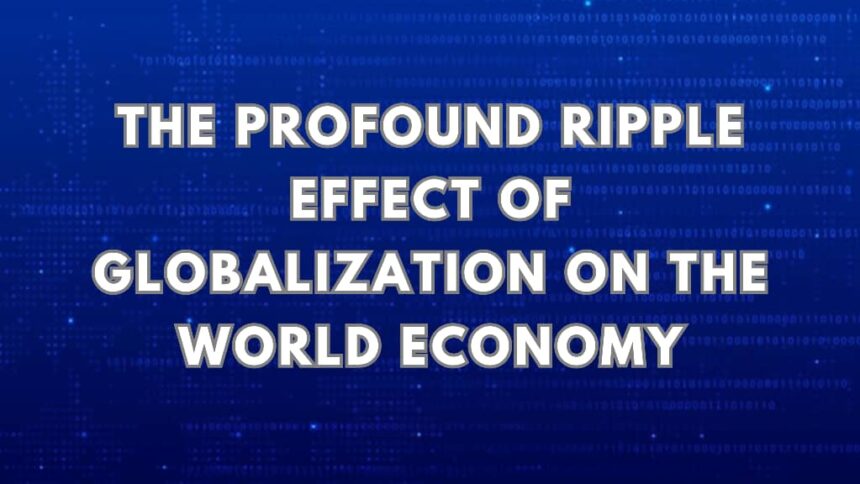As the world becomes increasingly interconnected, bridges between economies are not just being built but widened too. This is primarily due to globalization, a force as powerful as it is transformative, that has sparked intriguing debates among economists, policymakers, and entrepreneurs. The defining ethos of the 21st century, globalization, has tailor-made an extraordinary global tapestry, offering more economic opportunities while presenting new challenges.
Globalization, anchored by the drive towards economic integration, has fostered interdependence among nations through transnational trade, investments, and advancements in technology. Its impact on the world economy is immense and multifaceted, with its fingers in many pies extending from international trade to technological innovation, and beyond.
To begin with, international trade has boomed exponentially, owing much to the ease of business across borders facilitated by globalization. As tariffs became passé and protectionist policies dissolved, multinational corporations found fertile ground to flourish, shoot branches across continents, and garner profits. Their growth, in turn, sped up economic recovery for many countries and improved the GDP globally.
However, this focus on international trade leads us to question whether globalization has benefitted all economies equally. A valid criticism states that developed nations have enjoyed the lion’s share of the benefits, leaving developing countries to fend for themselves amid the tumultuous waves of globalization. Income inequality, both within and among countries, has exacerbate, and wealth distribution remains significantly skewed.
On another note, globalization has been a key player in levelling the field for technological advancement. High-speed data transmission, internet proliferation, and state-of-the-art technologies have been universally accessible to some extent. Developing countries experiencing digital dividends have utilized technology to leapfrog stages of development, revolutionizing sectors such as healthcare, education, and commerce.
Yet, another facet of this coin is the risk of overreliance on technology and the digital divide it can forge. Access to technological innovation is not evenly split, and those left behind could face exacerbated socioeconomic disparities.
Besides, globalization has brought about significant changes in labor markets. There are improved opportunitites for workforce mobility leading to diverse, inclusive, and productive work spaces. But, conversely, it also causes fears of job insecurity due to off-shoring and immigrant labor.
On an environmental perspective, the surge in industrialization and production associated with globalization poses substantial concerns. Climate change and environmental degradation are stark reminders that the relentless pursuit of economic growth should not overlook sustainable practices.
In conclusion, globalization paints a complex picture of the world economy. Its impacts invariably encompass both spectacular successes and profound challenges. Regardless of its mixed results, no one can trivialize or ignore globalization as it continues to shape our future in previously unimaginable ways. We must sensibly navigate this global network, mitigate potential harm, and shape policies to ensure the ripple effects benefit all, not just a select few.
As we continue jigsawing our understanding of globalization, let’s recall the words by Kofi Annan, “‘Arguing against globalization is like arguing against the laws of gravity.” Hence, it is not about eschewing globalization, rather, optimizing its benefits while buffering its negative impact should be the focus.







